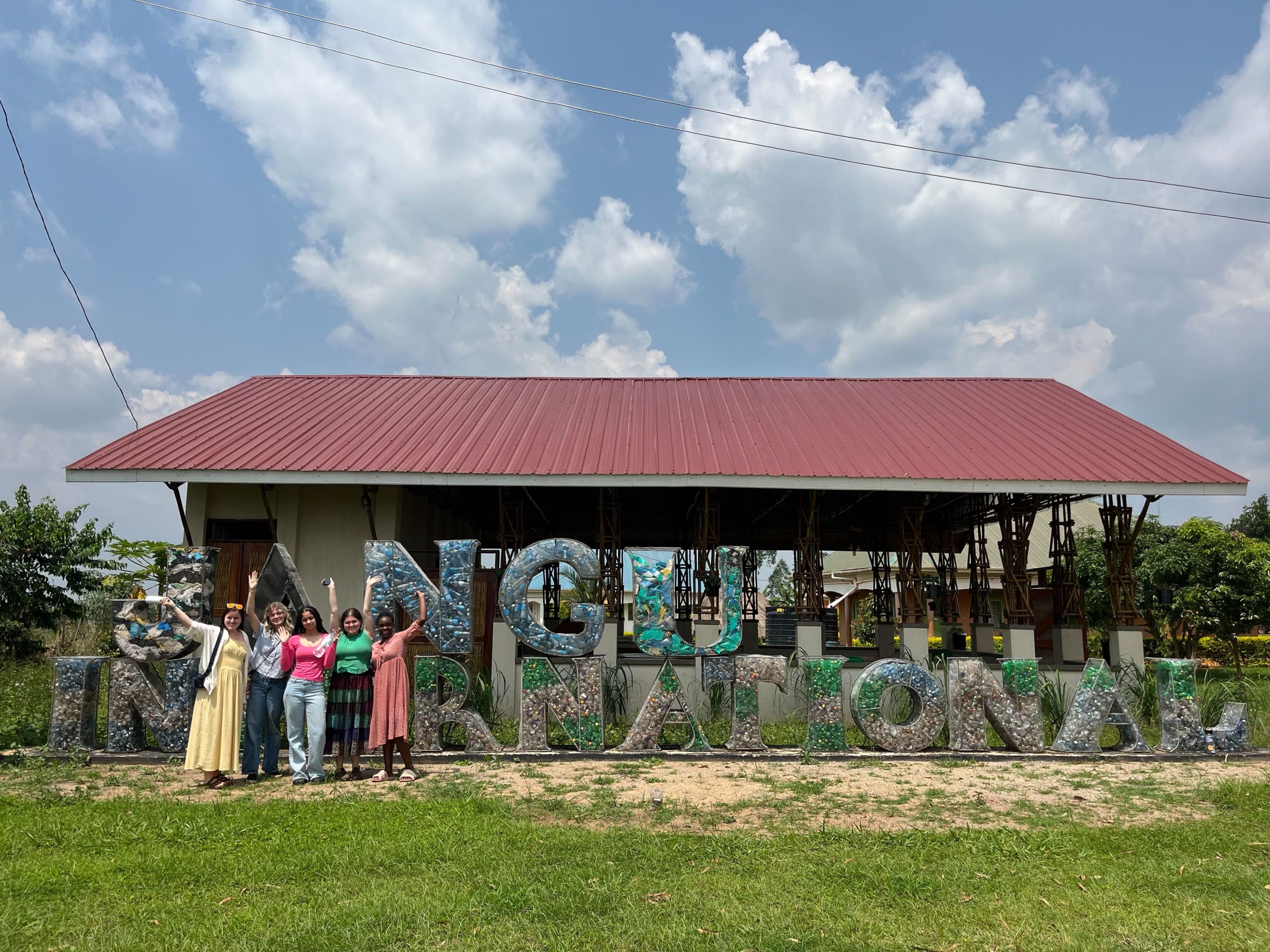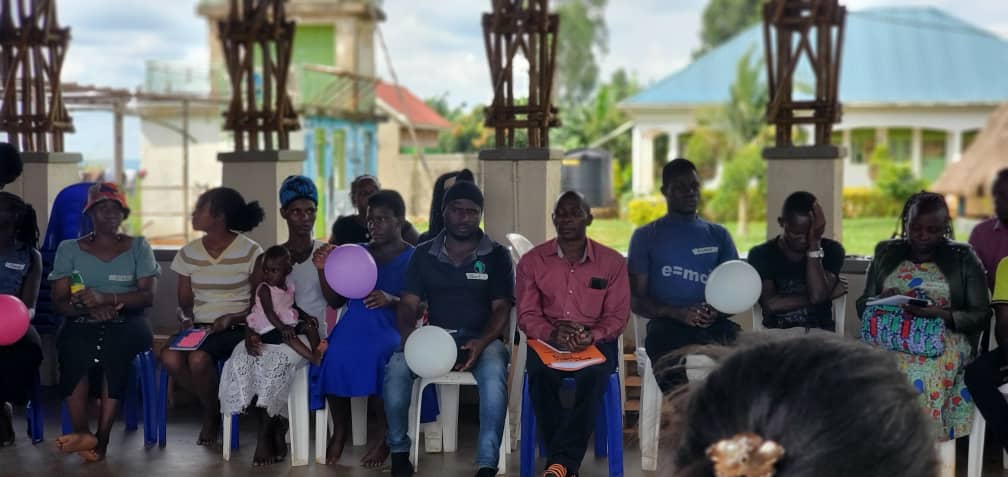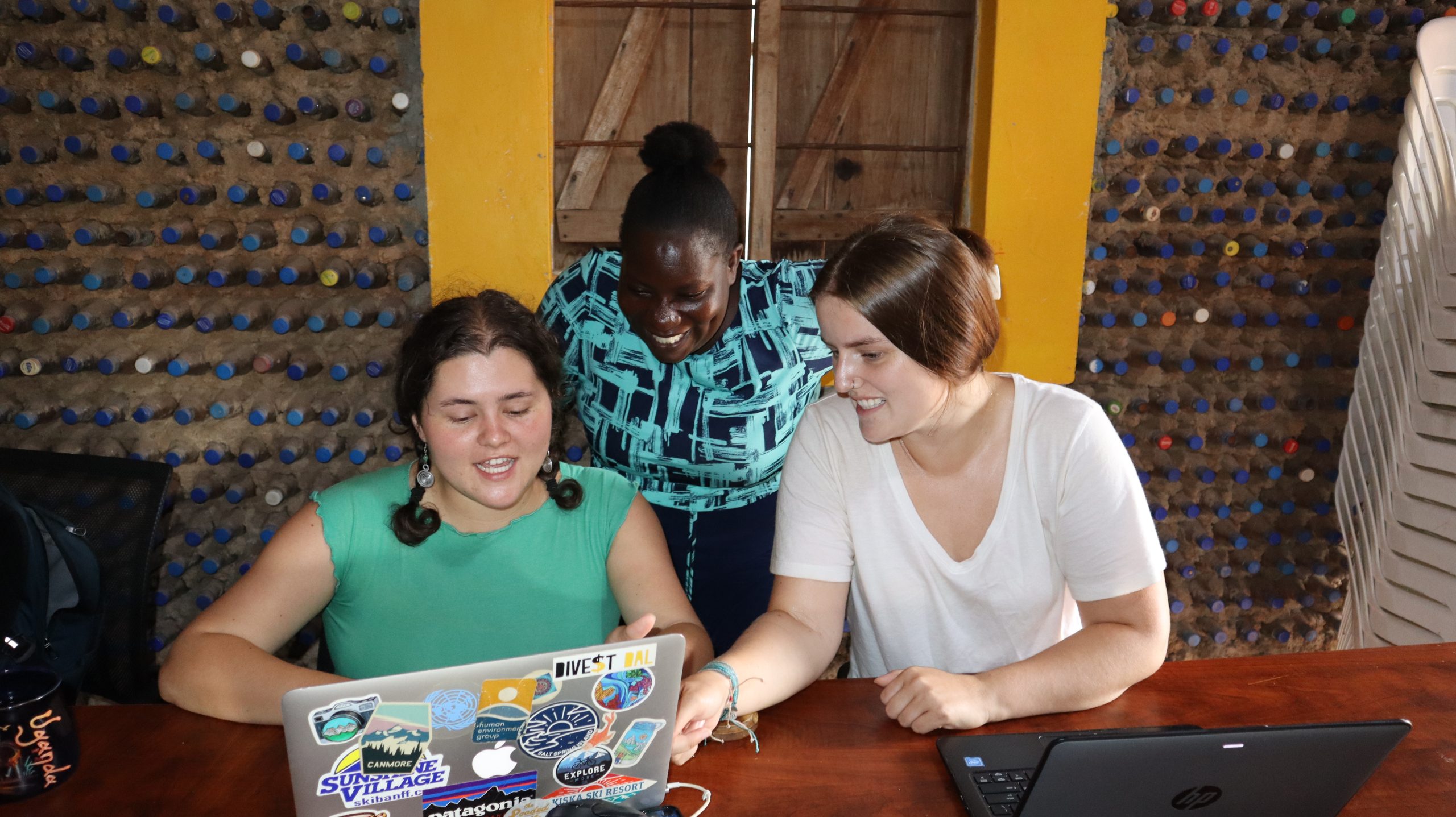Social Innovation Academy and Youth Challenge International teamed up through our Partner Innovation Fund to pilot gender-transformative ideas in rural Uganda.
Partner Innovation Spotlight: Shifting Gender Narratives in Uganda
By YCI Staff & Pelly Shaw | Uganda

How might we…address gender inequality in our communities?
How might we…empower women and girls in rural Uganda effectively?
How might we… test innovative approaches and solutions within HerStart?
These are the questions that the Youth Challenge International and Social Innovation Academy team actively explored over the last year with the women, men and youth of the Mpigi district in Uganda. Responding to these questions, they unpacked the negative impacts of harmful gender norms and began dismantling organizational barriers to gender equality through YCI’s Partner Innovation Fund within the HerStart program.
HerStart is made up of several project components and diverse collaborators. This includes direct partnerships with local organizations that have expertise in critical areas in each country we work in, including the Social Innovation Academy (SINA) who has been unleashing the potential of disadvantaged youth through social entrepreneurship since 2014. One of the ways YCI collaborates with organizations like SINA, is through the Partner Innovation Fund. This story highlights how the HerStart network in Uganda leveraged the Fund to dive deeper into the complex topic of gender equality.
YCI’s Partner Innovation Fund provides HerStart partners with additional funding, technical training and volunteer support to pilot an innovative, human-centered design project that tackles the thematic focus of the year. The goal of this Fund is to further build local organizations’ knowledge, skills and impact in critical areas.
Last year, SINA leveraged the Partner Innovation Fund for two main purposes: 1) to mainstream gender equality throughout their policies and practices; and 2) to pilot workshops that would shift gender norms and stereotypes in local communities. SINA took on these ambitious goals through a 6-month plan that included developing a Gender Equality Strategy and Sexual and Gender-Based Violence Policy, as well as facilitating interactive community engagement sessions for both men and women from local areas.
 According to the United Nations, gender inequality remains one of the most pervasive forms of discrimination in Uganda. For example, many women and girls in Uganda experience limited access to education, with only 39% of girls enrolling in secondary school (Afrobarometer, 2024). Additionally, 95% of women surveyed within the National Survey on Violence in Uganda (2021) reported experiencing physical and/or sexual abuse, highlighting the urgent need for initiatives that promote gender equality and empower women and girls. Through the co-implementation of a gender equality pilot project, YCI and SINA aimed to start shifting this reality.
According to the United Nations, gender inequality remains one of the most pervasive forms of discrimination in Uganda. For example, many women and girls in Uganda experience limited access to education, with only 39% of girls enrolling in secondary school (Afrobarometer, 2024). Additionally, 95% of women surveyed within the National Survey on Violence in Uganda (2021) reported experiencing physical and/or sexual abuse, highlighting the urgent need for initiatives that promote gender equality and empower women and girls. Through the co-implementation of a gender equality pilot project, YCI and SINA aimed to start shifting this reality.
Within the Mpigi community, 6 workshops were held during the pilot in local secondary schools and at the Jangu International campus of SINA; in total more than 1,000 men and women were engaged in critical training and open discussions about gender equality, including how to combat stereotypes and meaningfully support women and girls in their community. A wide array of topics were covered including women in the workforce, skill building in male-dominated fields, healthy relationships and sexual and reproductive health.This is a rare opportunity in the Mpigi district, where gender equality and discrimination are typically taboo topics.
By creating a safe space for these conversations with both men and women, girls and boys, the project not only challenges deep seated stereotypes but also fosters a culture of support and hope for the future.
 One of the community session facilitators was Grace Namaganda, a local Gender Equality Specialist who recently joined the team as YCI’s Entrepreneurship & Learning Manager. When asked about the goal of the sessions, she shared: “When we look at religion and culture, it is deeply rooted, they have been indoctrinated into gender stereotypes for a long time. The objective of the workshops was for participants to gain basic knowledge, understand what gender equality was and how they can promote it within their communities”. Through their participation, she observed that community members began to shift their understanding of gender issues. Initially, many of the men and boys arrived with the idea that gender issues are an issue for women only. However, this understanding shifted for many participants by the end of each session.
One of the community session facilitators was Grace Namaganda, a local Gender Equality Specialist who recently joined the team as YCI’s Entrepreneurship & Learning Manager. When asked about the goal of the sessions, she shared: “When we look at religion and culture, it is deeply rooted, they have been indoctrinated into gender stereotypes for a long time. The objective of the workshops was for participants to gain basic knowledge, understand what gender equality was and how they can promote it within their communities”. Through their participation, she observed that community members began to shift their understanding of gender issues. Initially, many of the men and boys arrived with the idea that gender issues are an issue for women only. However, this understanding shifted for many participants by the end of each session.
“By providing a safe space for both men and women to discuss these issues, everyone developed a better understanding of how stereotypes can be harmful to both genders,” said Ruth Nakaweesa, a local HerStart participant who joined two workshops. “The reaction was really positive,” said Rachel Mema, who is a co-founder of Jangu International. “People wanted to know more, and they wanted to help share what they learned with the larger community.” As an example, some of the sessions went up to 2 hours over time, as community members would continue to ask questions and not want the discussions to end.
“The gender equality sessions initiated conversations that many women and men weren’t accustomed to having together. Following the project, women and men from [her community] established a gender equality committee that hosts sessions on gender-related issues”.
– Marjorie Nabatoro, workshop participant
Next up SINA leveraged the Partner Innovation Fund to take a critical look at their own organizational strategies, policies and practices. Two Canadian volunteers completing HerStart International Fellowships, Liam Clifford and Taylor Allen, were key supports collaborating with SINA staff. This included supporting the development of the community workshop curriculum, onboarding the gender expert consultants and analyzing the results to feed into SINA’s new Gender Equality Strategy and Policy on Sexual and Gender-Based Violence.
 With the new strategy and policy in place, SINA is better equipped to deal with challenges around misconduct and to further promote equal treatment throughout the organization’s policies and programs. The next steps included fully implementing the strategy across the organization, leading follow-up community workshops and measuring the impact of these initiatives.
With the new strategy and policy in place, SINA is better equipped to deal with challenges around misconduct and to further promote equal treatment throughout the organization’s policies and programs. The next steps included fully implementing the strategy across the organization, leading follow-up community workshops and measuring the impact of these initiatives.
HerStart recognizes that gender inequality is a deeply rooted issue that requires a long-term gender-transformative approach to drive sustainable community impact. Together, SINA and YCI will continue to collaborate to remove gendered barriers and unlock the limitless potential of women and girls.
This includes the next round of the Partner Innovation Fund which is focused on the theme of ‘innovation’. SINA staff worked closely with HerStart International Fellow Carolina Diaz to design the newest pilot project which is now delivering innovative financial and digital literacy training to an extended network of small and micro-business owners in the Mpigi district. The YCI and SINA teams know that upskilling in digital marketing and financial management will help bridge the digital gender divide and increase the economic capacity of local businesses.
““In bridging the gender gap in technology and entrepreneurship, we aspire to foster economic empowerment and stability, enabling women entrepreneurs to thrive in today’s digital economy”
– Rachel Mema, SINA staff